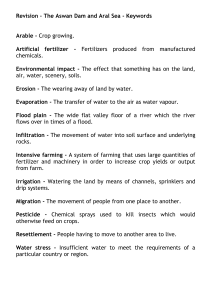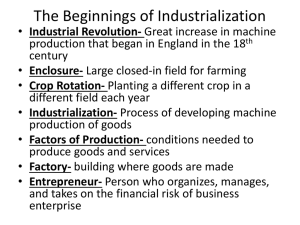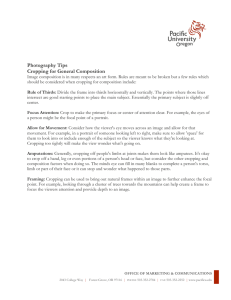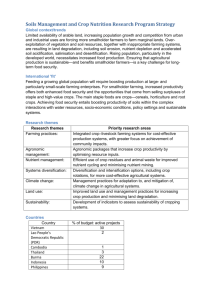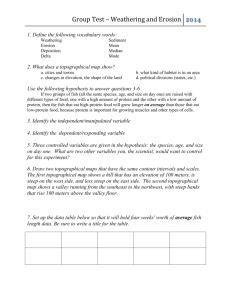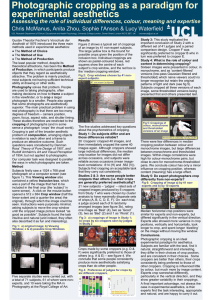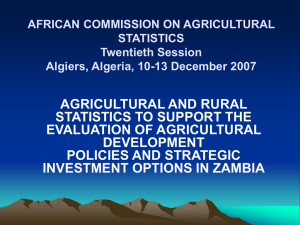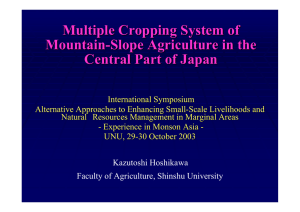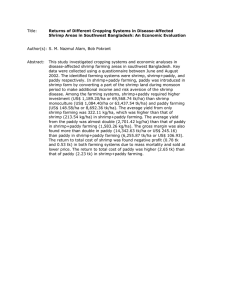Multiple Cropping System of Mountain-slope Agriculture in the Central Part... Japan
advertisement
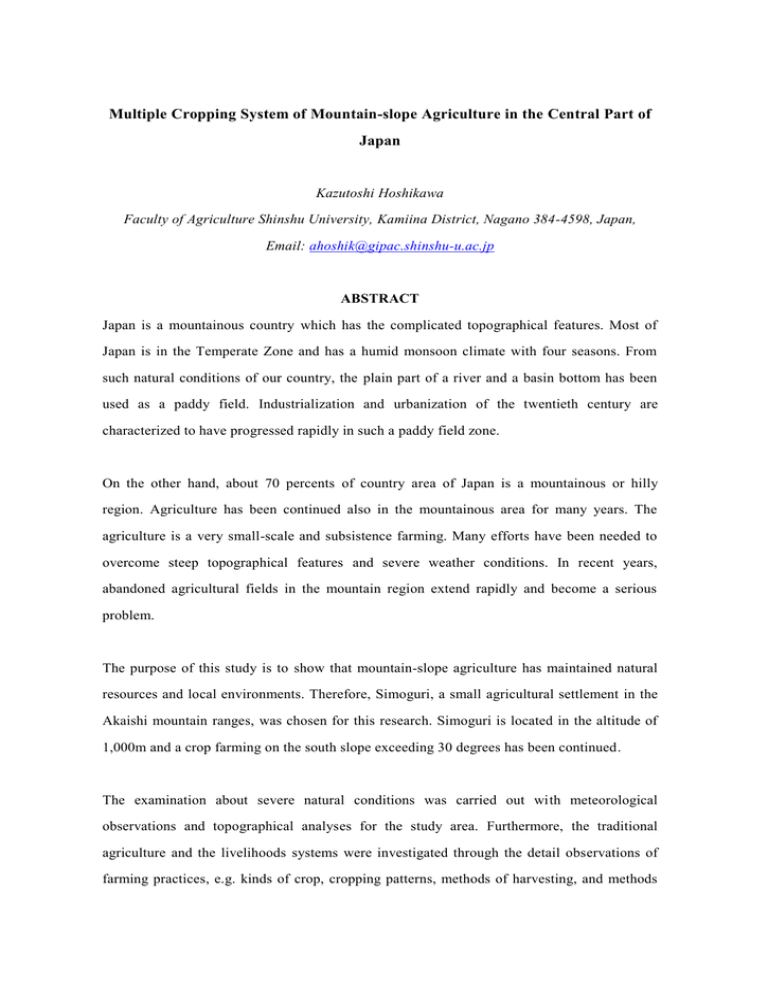
Multiple Cropping System of Mountain-slope Agriculture in the Central Part of Japan Kazutoshi Hoshikawa Faculty of Agriculture Shinshu University, Kamiina District, Nagano 384-4598, Japan, Email: ahoshik@gipac.shinshu-u.ac.jp ABSTRACT Japan is a mountainous country which has the complicated topographical features. Most of Japan is in the Temperate Zone and has a humid monsoon climate with four seasons. From such natural conditions of our country, the plain part of a river and a basin bottom has been used as a paddy field. Industrialization and urbanization of the twentieth century are characterized to have progressed rapidly in such a paddy field zone. On the other hand, about 70 percents of country area of Japan is a mountainous or hilly region. Agriculture has been continued also in the mountainous area for many years. The agriculture is a very small-scale and subsistence farming. Many efforts have been needed to overcome steep topographical features and severe weather conditions. In recent years, abandoned agricultural fields in the mountain region extend rapidly and become a serious problem. The purpose of this study is to show that mountain-slope agriculture has maintained natural resources and local environments. Therefore, Simoguri, a small agricultural settlement in the Akaishi mountain ranges, was chosen for this research. Simoguri is located in the altitude of 1,000m and a crop farming on the south slope exceeding 30 degrees has been continued. The examination about severe natural conditions was carried out with meteorological observations and topographical analyses for the study area. Furthermore, the traditional agriculture and the livelihoods systems were investigated through the detail observations of farming practices, e.g. kinds of crop, cropping patterns, methods of harvesting, and methods of soil plow and protection. Consequently, it became clear that there are various site appropriate skills and farmer’s peculiar knowledge in this area. In spite of a narrow and steep farmland, fifty or more kinds of various crops have been grown. Although such multiple cropping system is conventional and small-scale, the many skills of crop and land management have been handed down in the village. When many traditional skills and life styles join together in the study area, these agricultural technologies play a big role to biological resources protection and land managements in the mountain fields.
